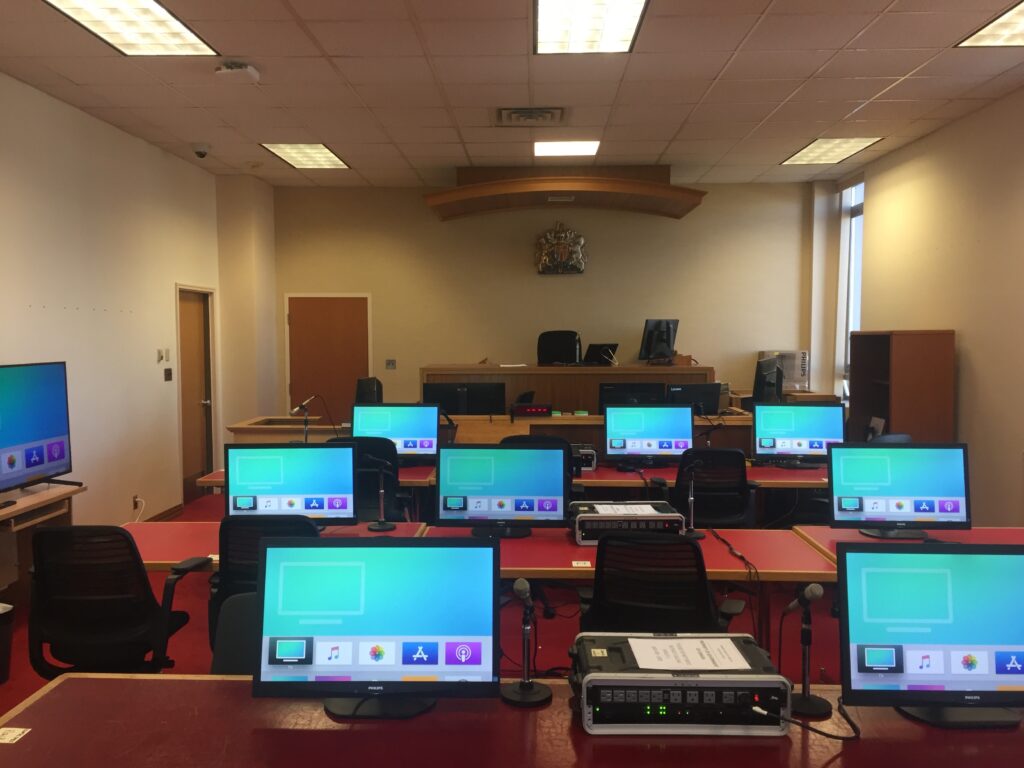The parties to Saugeen Ojibway Nation v. AG Canada et al (“SON”) (ONSC Court File Nos. 94-CQ-50872CM and 03-CV-261134CM1) signed but did not file two orders for E-trial which included an E-Trial Plan and a consent order for the two services providers (i.e., for the E-Trial Platform and for Realtime Reporting).

The consent orders for E-Trial confirm three key things. First, that the federal and provincial governments, and the other parties, will use the REDI platform to provide Electronic documents. Second that a local Court Reporting company will be appointed official court reporter for the action. The Reporting company also provided the parties with Realtime transcription. Third, that the courtroom would have a dedicated, hardwired internet line access for the duration of the trial.
For the SON E-Trial, the Plaintiffs were only required to provide a switch box and cables. The Plaintiffs started by setting up a wireless internet in the Courtroom, but have now hardwired most of the computers to the internet. Plaintiffs’ Counsel informed me that they are using an iPad and large TV to annotate exhibits when examining the more “tech-savy” witnesses.
All documents referred to in court are being uploaded into the REDI Platform, and the Court is marking exhibits in the Platform. Plaintiffs’ Counsel remarked that examinations seem to be taking less time, since – in the digital environment – all parties are instantly on the same page. Counsel also noted that, since everything that will be referred to in court is being loaded into the REDI Platform, there is no need for assistants to prepare paper documents and briefs for court.
Why this matters: This is another window into how to get your case to court as an E-Trial. Here, the parties found there was value in signing very specific Consent Orders for E-Trial, which facilitated the parties’ processes. The parties also paid close attention to their requirement for the internet requirements, naming that requirement in the E-Trial Plan. This E-Trial has been underway since May 2019, and is scheduled for 222 days.

